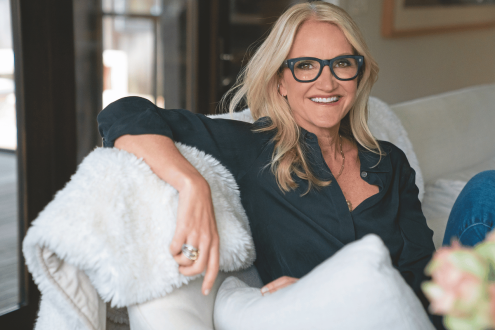How to recognise a controlling partner
The introduction of a partner can alter the dynamics of our friendships. Ellen Tout shares experts’ advice on making love and friendship work together

Q: ‘One of my oldest friends is getting married next year and she’s asked me to be her bridesmaid. Since asking her to marry him, her fiancé has become increasingly controlling.
Whenever I see her now, he tags along and cuts the meeting short. Recently, she left me to attend a party alone because he didn’t want her to go. I know he also calls her home early from work events and makes snarky comments. I’m seriously worried about her, but how do I tell her? Can you tell me how to recognise a controlling partner and what actions to take?’
A: ‘You are right to be worried,’ says Mary Fenwick. ‘What you describe is potentially coercion under a new UK law.’ The new law means it is an offence to carry out patterns of controlling or coercive behaviour in a relationship, and recognises this form of abuse as potentially more harmful than a single act of violence.
The types of behaviours covered by the law include monitoring a person’s time, isolating a partner, controlling aspects of their life or repeatedly degrading their self-worth.
The first challenge is finding space so you can talk. ‘Is there a way of creating an activity that wouldn’t involve her fiancé?’ asks Fenwick. ‘A special date just for you two – a spa day, wedding dress shopping or trying out hair and make-up?’
To have better conversation, you need to handle your words with care. ‘Sharing your concerns with her in a critical way could make her defensive and less likely to open up,’ says Galbraith. ‘Show her you care by asking her how she feels about her relationship in a supportive and non-judgemental way. It is often through providing the space for someone to discuss their issues, through empathising, offering genuine concern and listening non-judgementally, that we can empower others to make changes in their lives.’
‘Try to ensure she does most of the talking, so you’re not another person telling her what to do,’ says Fenwick. ‘She needs to know what genuine concern feels like.’
Be aware that your friend may have no worries at all. ‘Sometimes, in the excitement of getting engaged, we don’t notice this kind of behaviour from a partner,’ says Barbara Bloomfield. ‘We think they’re so in love with us that they can’t bear to be apart.’ And, as Galbraith points out, ‘She may be aware that her fiancé is controlling, but she has decided to accept it by agreeing to marry him.’
But if you have real concerns, do speak up. ‘She could really welcome someone to talk to,’ says Galbraith.
‘She may value your honesty and if she’s having doubts, this could be the conversation that helps her to reflect,’ says Bloomfield. ‘If this is indeed an abusive relationship, helping her to see this will be an invaluable gift.’
If your concerns don’t pass, then Fenwick suggests looking for external support. ‘The National Domestic Violence Helpline is there for friends and family who want to support a suspected victim. They would help you to work out a conversation with your friend, which can be pretty direct, like, “I’m worried about you because…”’
We spoke to the following people for advice:
- Barbara Bloomfield, Relate couples and family counsellor and author
Photograph: iStock









